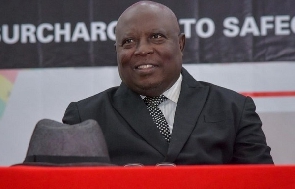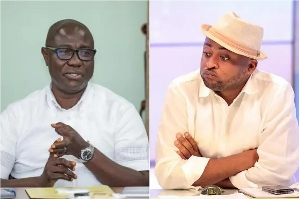The Parliament of Ghana is billed to provide Special Prosecutor, Martin Amidu with all the documents covering the Agyapa Royalties deal today, Monday, 14 September 2020.
This follows an official request made by Mr Amidu to the legislature in that regard.
The request was pursuant to Sections 2(1) (c), 29 and 73 of the Office of the Special Prosecutor Act, 2017 (Act 959) and Regulation 31 (1) and (2) of the Office of the Special Prosecutor (OSP) (Operations) Regulations, 2018 (L.I. 2374), which mandate the office to exercise the functions and powers of prevention of corrupt activities.
Parts of the OSP’s official request said: “This office will be concentrating on any potential of the said transaction(s) to promote and facilitate the suspected commission of corruption and corruption-related offences and advise the government accordingly”.
The deal, meant to monetise Ghana’s gold royalties, has attracted a lot of controversy since it was passed by Parliament.
A few days ago, the Alliance of CSOs Working on Extractive, Anti-Corruption and Good Governance called for the suspension of the deal pending further dialogue on some critical issues concerning the mineral royalties monetisation agreement.
At a press conference on Tuesday, 8 September 2020, the spokesperson for the coalition, Dr Steve Manteaw, said: “The provision in Section 28(5) of the Mineral Income Investment Fund (MIIF) Act seeks to declassify royalties as taxes and make it a revenue stream for the MIIF and by extension, Agyapa. Exempting Agyapa from taxes, does not exempt government alone, but also the investors.
“This is the more reason the government should not exempt Agyapa from taxes and failure to do so, only benefits the investors.
“In considering Agyapa, what becomes of the government’s manifesto promise to increase royalty share to mining-affected communities”, he pointed out to journalists.
According to him, “in the government’s 2016 manifesto, it stated that: ‘With regard to mineral royalties, the NPP’s policy is to ensure that mining communities receive a higher share of the royalties. Currently, 80 percent of the royalties go to the government, 10 percent to the Minerals Commission and 10 percent to the community. The NPP will reduce government’s share to 70 percent while doubling community share to 20 percent. The additional 10 percent to the community, would be given to the district assembly, to be used specifically for developing infrastructure in the mining community’”.
“How the government is responding to this promise is missing from its effort through the MIIF and the related Agyapa transaction”, Dr Manteaw wondered.
He noted that: “These are important questions that require a national conversation to be addressed”.
“It is not enough for the minister of finance or the government to ask the citizens to trust their sincerity and their expertise.
“It will not be right for them to try and bulldoze through a controversial transaction such as this and about which genuine questions have been raised by experts as well as by ordinary Ghanaians.
“We are, therefore, reiterating our call to the government to suspend the implementation of this transaction pending dialogue on options available to optimise Ghana’s mineral royalties”, he demanded.
Parliament, a few weeks ago, in line with the Minerals Income Investment Fund (MIIF) Act, 2018 (Act 978), approved agreements to allow the country to derive maximum value from its mineral resources and monetise its mineral income accruing to the country in a sustainable and responsible manner.
The move gives Agyapa Royalties Limited the right to secure about $1 billion to enable government finance large infrastructural projects.
Already, the deal has been criticised by the opposition National Democratic Congress, which accused the government of mortgaging the country’s mineral resources.
Business News of Monday, 14 September 2020
Source: classfmonline.com













